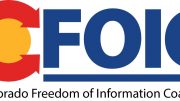By Jeffrey A. Roberts
CFOIC Executive Director
Colorado legislators defeated a bill Tuesday that would have mandated additional public reporting for urban renewal authorities that allocate tax revenues.
HB 17-1161 died on a 10-3 vote in the House Business Affairs and Labor Committee, despite support from county government officials and advocacy groups.
Both Americans for Prosperity and the Colorado Fiscal Institute favored the proposal, which would have required annual financial reports for urban renewal authorities and independent audits prepared by certified public accountants. The reports were to include information such as incremental property or sales tax collections, how revenues are spent and a summary of development progress.
“We see this as good government, and what’s wrong with giving a report?” testified Barbara Kirkmeyer, a Weld County commissioner and chair of the Fort Lupton Urban Renewal Authority. “It’s a way to enhance communication.”
 Although audited financial statements already are required for urban renewal authorities, Kirkmeyer said she never sees those reports from the urban renewal authorities in her county, “and I meet with our municipalities on a pretty regular basis … They don’t sit there and talk about their urban renewal authority projects.”
Although audited financial statements already are required for urban renewal authorities, Kirkmeyer said she never sees those reports from the urban renewal authorities in her county, “and I meet with our municipalities on a pretty regular basis … They don’t sit there and talk about their urban renewal authority projects.”
Rep. Susan Beckman, the Littleton Republican who sponsored the bill, said residents and officials shouldn’t be expected to use the Colorado Open Records Act (CORA) to find out how taxpayer dollars are being used by urban renewal authorities.
CORAs “aren’t easy, they’re complicated,” she said. “A lot of times it’s a cat-and-mouse game, and it’s a very adversarial way for someone in the community to get information.”
Urban renewal authorities use tax increment financing to fund redevelopment projects in blighted areas. Beckman said HB 17-1161 was about transparency and wasn’t aimed at “getting rid of tax increment financing or urban renewal authorities.”
But Kevin Bommer, deputy director of the Colorado Municipal League, said the bill did much more than require extra reporting. Because definitions in the legislation weren’t consistent with existing statutes, he testified, the measure could “create restrictions” for urban renewal authorities and affect their bonded indebtedness.
Bommer said municipalities and urban renewal authorities already are transparent about how taxpayer dollars are spent.
Several members of the committee said they agreed with Beckman’s goal of transparency for urban renewal authorities but couldn’t support the bill because of other concerns, such as whether accountants are qualified to determine, as the proposal required, whether tax revenues had been used for “unauthorized purposes.”
“Transparency in local government is of paramount importance, as it is here in state government,” said Rep. Matt Gray, D-Broomfield. “But we have a law on the books right now that requires urban renewal authorities to submit their financial statements to an annual audit. I haven’t heard any testimony that people aren’t complying with that.”
Follow the Colorado Freedom of Information Coalition on Twitter @CoFOIC. Like CFOIC’s Facebook page. Do you appreciate the information and resources provided by CFOIC? Please consider making a tax-deductible donation.




